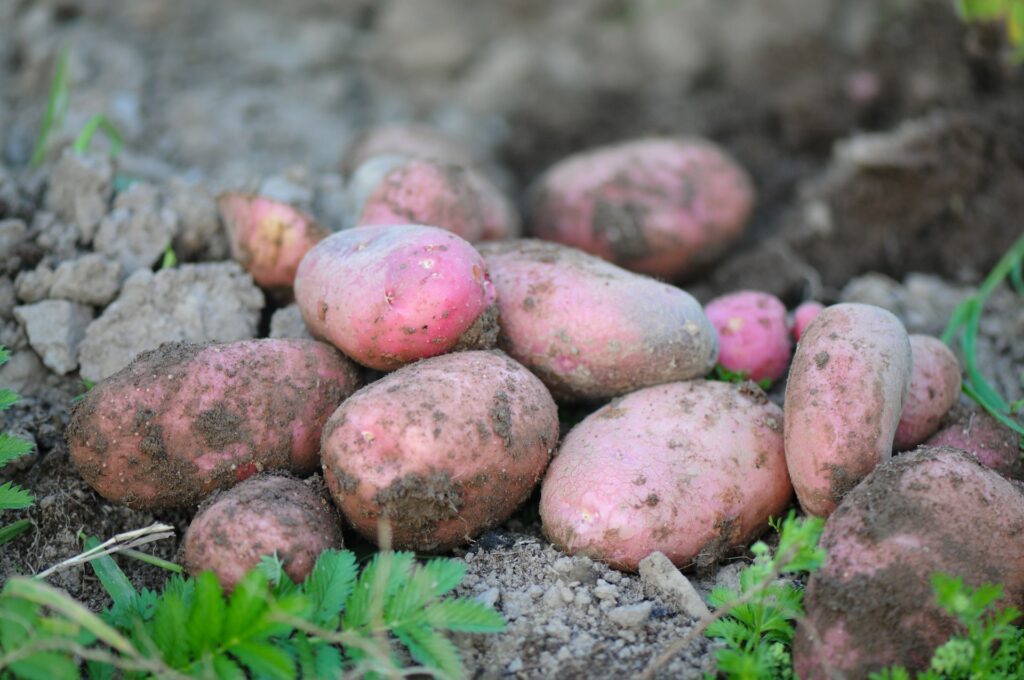
USDA funds closer look at options to replace neonicotinoids
The USDA’s Specialty Crop Research Initiative (SCRI) recently announced funding for a four-year, Potatoes USA-supported research project to develop and evaluate potential alternatives to neonicotinoids for pest management of potato crops.
Neonicotinoids (commonly called “neonics”) are a type of insecticide that has seen widespread usage in the United States for 25 years. Neonics have been a critical tool for potato growers given their ease of use and low application cost.
However, environmental concerns have shifted companies and consumer demand away from purchasing potatoes that use neonics. Critics have linked widespread neonic usage with rising resistance among pest populations, harm to pollinators, and environmental contamination. As a result, major retailers like Walmart and Costco have encouraged fresh produce suppliers to phase out the use of neonics in recent years.
The long-term goal of the research project is to develop and adopt new pest management strategies in the U.S. potato industry that serve as an effective alternative to neonics. To accomplish this, the project, called “Enhancing integrated insect pest management strategies for U.S. potato production systems” and nicknamed “Potato IPM”, has four objectives:
- Objective 1: Develop and evaluate non- neonic pest strategies in ware and seed potatoes.
- Objective 2: Develop pest prediction and decision-making tools.
- Objective 3: Evaluate the socioeconomic influences and impacts associated with transitioning from neonics to new pest management strategies.
- Objective 4: Facilitate the adoption of new strategies among growers.
The Potato IPM team is led by project director Zsofia Szendrei, Ph.D., a professor in the Department of Entomology at Michigan State University, and co-project director David Douches, Ph.D., who has led the potato breeding and genetics project at Michigan State University since 1988.
Szendrei researches chemical ecology, biological control, habitat management, and behavioral pest management in addition to her teaching and extension work.
“I’m excited to provide leadership to the team of researchers, to collaborate with our grower advisory panel, and with Potatoes USA over the next four years of the project,” Szendrei said. “I’m also looking forward to the many exciting results that will be produced as a result of this funding to help potato growers across the U.S.”
Douches’ program has targeted for improvement traits such as Colorado potato beetle resistance, disease resistance to scab, late blight, potato virus Y, and chip processing from long-term storage.
“I am excited to work with the entomologists to identify potato lines with insect resistance that can reduce insecticide use,” said Douches.
Potatoes USA’s Potato Research Advisory Committee (PRAC) selected the Potato IPM project to submit to USDA’s SCRI. PRAC supported the Potato IPM submission with 51 letters of support from national organizations, regional and state organizations, processors, regulators, research entities, and growers in 12 states.
PRAC meets each year to discuss research proposals submitted to various funding sources, with SCRI being one of the most popular submission sources. Since 2016, PRAC’s efforts have helped six projects led by potato scientists win $38.8 million in funding for the industry.
This work is supported by the USDA National Institute of Food and Agriculture (NIFA) award number 2023-51181-41160.







